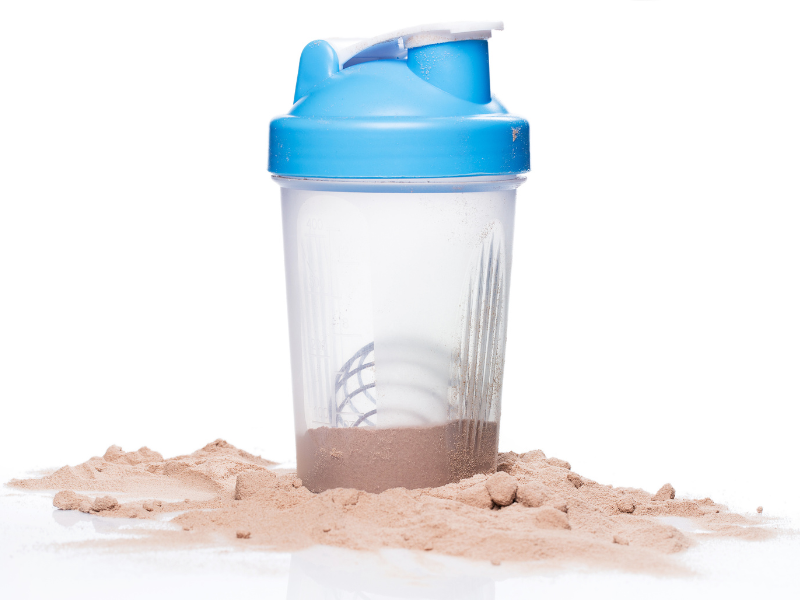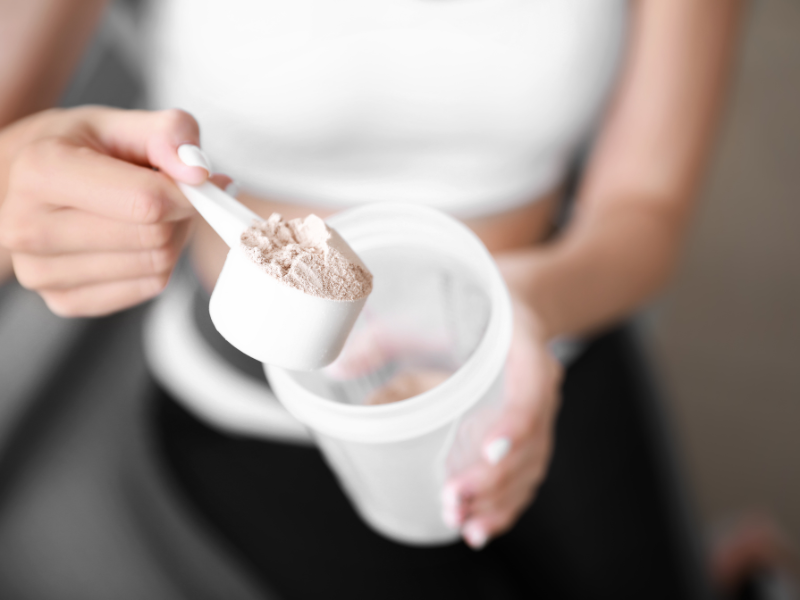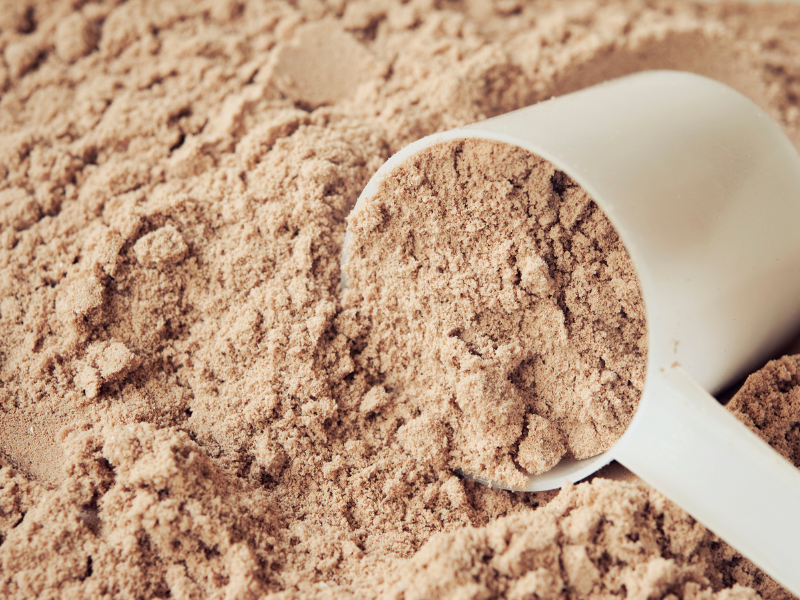Whether you're a gym enthusiast or someone simply looking to supplement your diet - protein powder has likely come across your radar.
It's a popular supplement that has been the center of many discussions and misconceptions, particularly when it comes to weight gain.
This article aims to debunk some common myths and shed light on the facts.
Read on so you can make a more informed decision about your nutritional needs.
Understanding Protein Powder

Protein powder is a popular supplement among fitness enthusiasts for its high-quality protein that provides essential amino acids necessary for muscle repair and growth. Most protein powders, such as whey protein, pea protein, and hemp protein, are derived from high-protein foods like milk, peas, and hemp seeds. They are consumed in the form of protein shakes, often used to supplement dietary intake of protein.
Myths about Protein Powder and Weight Gain

Myth 1: Protein Powder Automatically Leads to Weight Gain
The question "Will protein powder make you gain weight?" is quite common. However, protein powder in itself does not cause weight gain. Weight gain occurs when your caloric intake exceeds your caloric expenditure – a state known as caloric surplus. Drinking protein shakes can contribute to a surplus if you consume more calories than you burn, but the protein powder doesn't make you gain weight.
Myth 2: All Protein Powders Are the Same
Not all protein powders are created equal. For instance, whey protein supplements are quickly absorbed, making them excellent for post-workout recovery. On the other hand, casein protein digests slowly, providing a sustained release of amino acids. Plant-based protein powders like pea protein or brown rice protein can be ideal for those with dietary restrictions or particular preferences.
Myth 3: Protein Powder Is Only for Bodybuilders or Athletes
Protein powder is beneficial for anyone leading an active lifestyle or looking to supplement their protein intake, not just bodybuilders or athletes. It's a convenient way to ensure you're getting enough protein to support your physical activity and overall health.
Myth 4: Consuming Protein Powder Will Make You 'Bulky'
Consuming protein shakes does not inherently lead to a "bulky" physique. Gaining muscle mass requires strength training and a caloric surplus, not just high protein intake. Without resistance training, extra protein won't lead to significant muscle growth.
Facts about Protein Powder and Weight Gain

Fact 1: Caloric Intake Versus Protein Intake
While protein is essential for muscle growth, it's your calorie intake, not protein intake, that primarily determines whether you gain or lose weight. Consuming more calories than your body burns leads to weight gain, whether those calories come from protein, carbs, or fats.
Fact 2: The Role of Protein in Muscle Recovery and Growth
Protein plays a crucial role in muscle repair and growth. After a workout, muscles undergo damage that is repaired with the help of amino acids derived from protein. This process helps grow muscle, leading to muscle gain, not necessarily weight gain.
Fact 3: The Difference Between Gaining Muscle Mass and Gaining Fat
Gaining weight doesn't always mean gaining fat. When combined with strength training, consuming protein shakes can help build muscle. This might increase body weight due to muscle mass, but it often leads to lower body fat percentages because muscle burns more calories than fat.
Fact 4: How Protein Can Actually Aid in Weight Loss
Research suggests that a high-protein diet can promote weight loss. Protein can increase satiety, leading to fewer calories consumed overall. Protein also burns more calories while digesting compared to other macros.
Protein Powder and a Balanced Diet
Alt Text: An image of a protein powder scoop next to a vegetable.
While protein powder is a convenient way to increase protein intake, it's best used as a supplement to a balanced diet full of whole foods, not a replacement. Consuming a variety of natural sources of protein, such as lean meats, dairy, legumes, and plant-based proteins, ensures you're getting a broad spectrum of nutrients.
Protein Powder FAQs
Can I use protein powder if I'm lactose intolerant?
Yes, there are many lactose-free options available, including plant-based protein powders and egg white protein powders. However, always remember to check the label for any hidden lactose or dairy derivatives to ensure that it is completely safe for you.
What type of protein powder is best for weight loss?
A protein powder low in sugar, saturated fat, and calories, but high in protein, can complement a weight loss plan. Try a protein isolate for a lean option. It's also beneficial to choose a protein powder that contains fiber, as this can help to keep you feeling satiated and control your appetite.
Can protein powder replace meals?
Protein powder should not replace whole foods entirely. It can be used as a supplement or in a pinch, but whole foods provide a variety of nutrients that are hard to match with any supplement. It's also worth noting that while protein powders can be a convenient source of nutrients, they lack the complexity and balance of nutrients found in whole meals.













































































Share:
Can Protein Powder Go Bad? Signs, Shelf Life, and Storage Tips
Conventional Deadlift vs Sumo Deadlift: Which is Best?